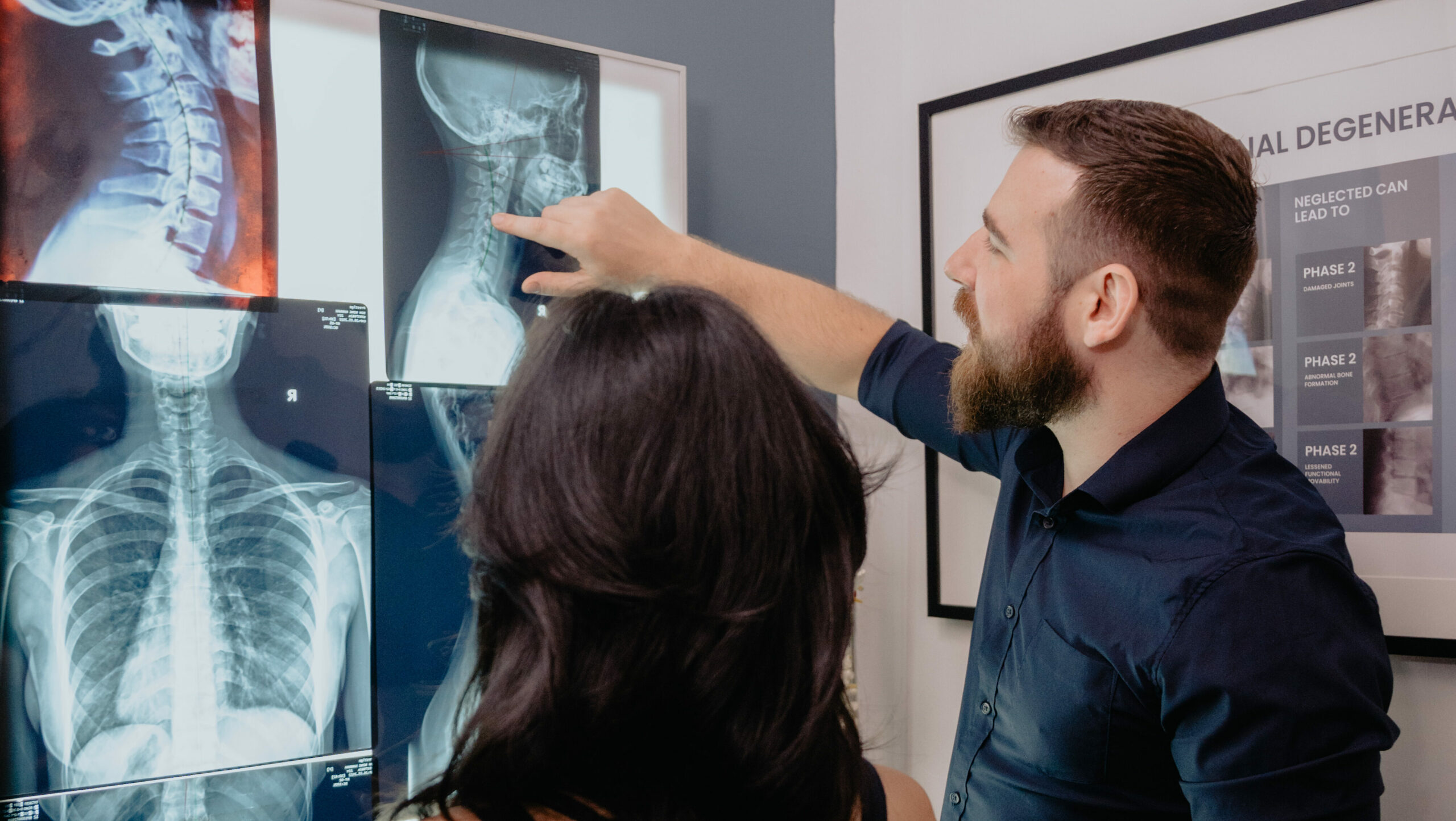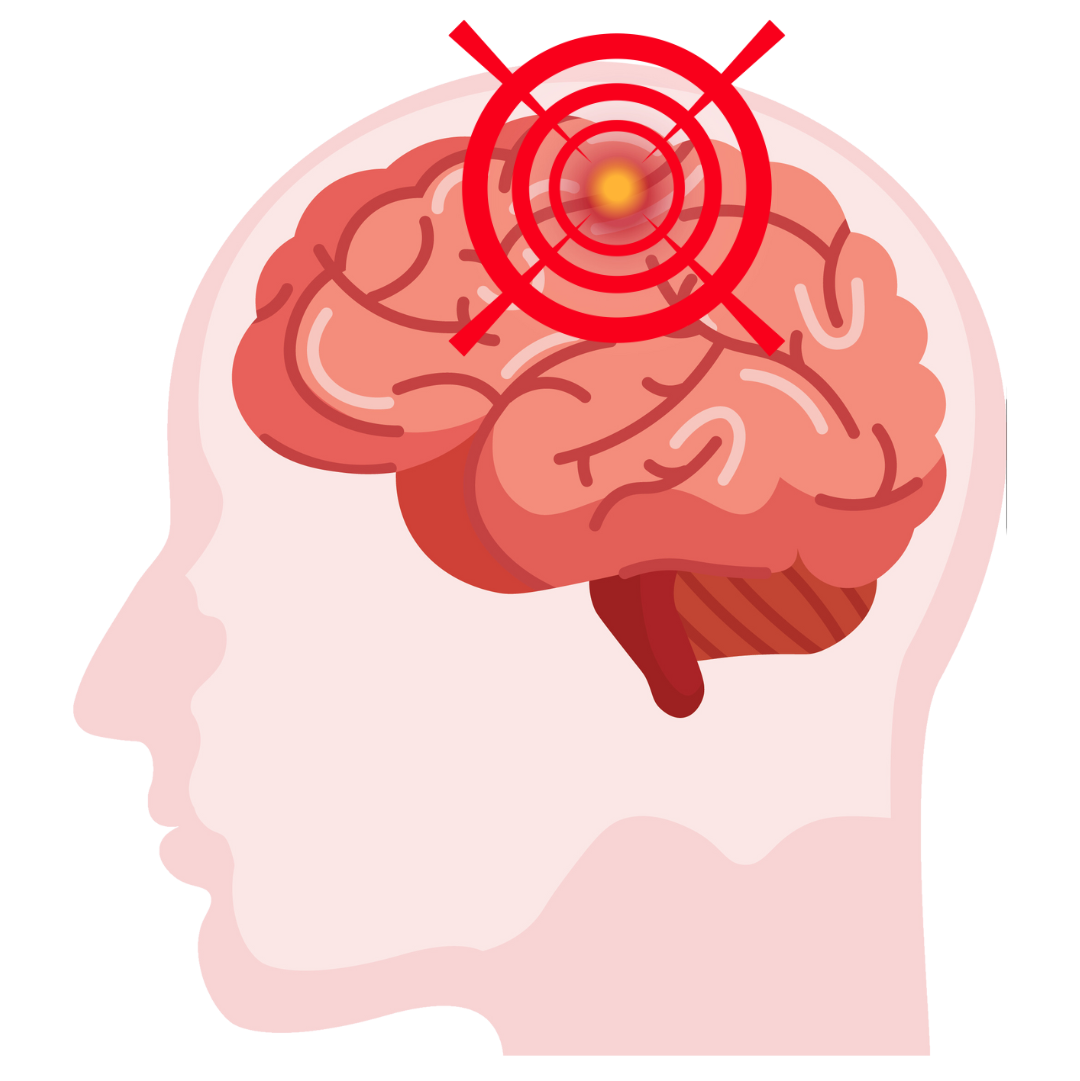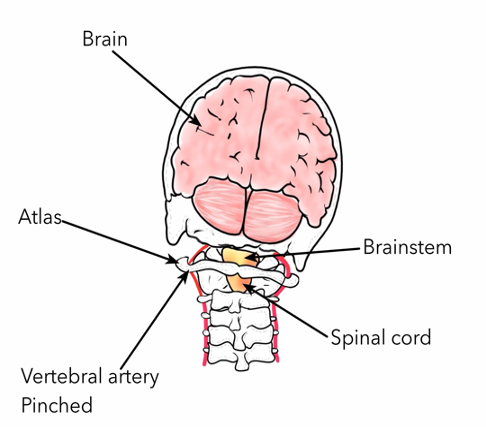Migraine: Causes, signs & how to relieve it
Regain control over your life and find relief from throbbing headaches.
Read on to discover effective strategies and alternative treatments to tackle intense, localised migraines.

🚨 Get >65% OFF @ $35 (U.P. $105) just by following our Instagram – @chirosingapore CLICK HERE TO BOOK
Read on to discover effective strategies and alternative treatments to tackle intense, localised migraines.

Grappling with concentrated, severe and recurrent headaches?
It’s possible that you’re dealing with migraines. Unlike common headaches, migraines can be exceptionally debilitating.
Fortunately, we offer a range of preventive measures and pain management techniques to help you find relief.

A migraine is distinct from a regular headache. Migraine episodes typically feature:

The International Headache Society has established a simple “5-4-3-2-1” approach for diagnosing migraines without vision impairment:
5 or more attacks, each lasting 4 hours to 3 days
A headache accompanied by at least 2 of the following:
And at least 1 additional symptom during the headache, such as:
Migraine pain is often described as a pulsating or throbbing sensation, which can be intensely uncomfortable.
Migraines typically affect one side of the head, although they can switch sides in different episodes.
Migraines are notorious for their ability to disrupt daily life. During an attack, individuals often find it challenging to engage in regular tasks or work.
Nausea is a common companion of migraines, sometimes escalating to vomiting. This gastrointestinal disturbance can compound the overall discomfort.
Some migraine sufferers experience visual disturbances known as auras. These can include seeing flashing lights, zigzag patterns, or even temporary blindness in severe cases.
Sensory sensitivity is a hallmark of migraines. Individuals with migraines often find bright lights and loud sounds exacerbate their discomfort.
Tension headaches typically involve a steady, dull ache rather than the pulsating, throbbing pain associated with migraines.
Tension headaches usually affect both sides of the head and are often described as a tight band or pressure around the head.
While tension headaches can be uncomfortable, they generally do not incapacitate individuals to the extent that migraines do. Most people can continue with their daily routines despite the discomfort.
Nausea and vomiting are not typical symptoms of tension headaches.
Tension headaches do not produce the visual disturbances or auras commonly seen in migraines.
Sensory sensitivity is a hallmark of migraines. Individuals with migraines often find bright lights and loud sounds exacerbate their discomfort.

A variation of early warning signs may manifest, including neck stiffness, irritability, depression, lethargy, mood changes, and constipation.
These typically involve your vision and you may experience tunnel vision, see flashes of light, black dots, hallucinations, or in worst cases, not being able to see at all. You might also hear ringing in your ears, have tingling sensations, or have difficulty speaking.
The onset of your migraine might begin dull, but will grow into a throbbing pain in one side of your head. It typically worsens during physical activity, and can last from a few hours to a couple of days.
Following the attack, you may experience extreme exhaustion or a sense of euphoria by surviving another attack!
While the exact cause of migraines remains elusive, various triggers can provoke them. These include:

Chiropractic care is a holistic approach to health that focuses on the musculoskeletal system, particularly the spine. It operates on the principle that proper alignment of the spine can positively impact overall well-being. So, how does this relate to migraines?
Migraines are complex and can have various triggers, but one common factor is tension in the neck and upper back. Stress, poor posture, and misalignment of the cervical spine (neck) can all contribute to this tension.
Chiropractors are skilled at identifying misalignments in the spine and performing precise adjustments to correct them. When it comes to migraines, they pay special attention to the cervical spine. By gently manipulating the vertebrae in your neck and upper back, chiropractors can relieve tension and restore proper alignment.
Personalised care
It’s important to note that chiropractic care is highly individualised. Your chiropractor will assess your specific condition, taking into account your medical history and lifestyle. They will tailor the treatment plan to address your unique needs.
Combination therapy
Chiropractic care can complement other migraine management strategies. Some individuals find relief by combining chiropractic adjustments with dietary modifications, stress reduction techniques, and relaxation exercises.
Consulting a chiropractor
If migraines are disrupting your life, it’s wise to consult a chiropractor who specialises in migraine management. They will conduct a thorough evaluation and determine whether chiropractic care is suitable for you.

Relieving migraines and headaches often involves a collaborative approach with various specialists. Here’s a breakdown of the specialists you can consider:
Your first step should be to consult with a GP. They can help diagnose the type and potential causes of your headaches or migraines. They may also provide initial treatment options, recommend lifestyle modifications, or refer you to specialists if needed.
If you’re interested in alternative and holistic approaches, a TCM practitioner, such as an acupuncturist, can be beneficial. They can target specific acupuncture points and provide herbal remedies that may help alleviate migraines and promote overall well-being.
Osteopaths are trained to address musculoskeletal issues, including those related to the spine and neck. If your migraines are associated with muscle tension, poor posture, or spinal misalignments, an osteopath can provide manual therapies to address these issues.
Chiropractors focus on spinal health and nervous system function. If your migraines are related to spinal misalignments, they can offer adjustments and other therapies to alleviate tension and reduce headache frequency.
Physiotherapists specialise in improving physical function and mobility. They can help address musculoskeletal issues, including those related to posture and muscle tension. They include exercises, manual therapy, and postural correction to alleviate migraine-related symptoms, particularly if they result from musculoskeletal problems.
Some healthcare centers have headache specialists who specifically focus on diagnosing and managing various types of headaches and migraines. They often have advanced training in headache disorders and can provide comprehensive care.
For more complex or persistent migraine cases, a neurologist specialises in disorders of the nervous system and can provide in-depth evaluation and management. They can also recommend medications and treatments tailored to your specific condition.
For migraines triggered or exacerbated by stress or emotional factors, consulting with a psychologist or psychiatrist can be valuable. They can help you manage stress, anxiety, or depression that may contribute to your migraines.

The decision between seeing a physiotherapist or a chiropractor for migraines or headaches can be influenced by personal preferences and the specific nature of your condition.
Physiotherapists primarily work on improving physical function and mobility. They address a wide range of musculoskeletal issues and can help with conditions related to posture, muscle tension, and joint problems.
Chiropractors specialise in diagnosing and treating musculoskeletal conditions, particularly those related to spinal misalignments (subluxations) and nervous system function.
Physiotherapy for migraines or headaches may include exercises to strengthen and stretch neck and shoulder muscles, postural correction, and manual therapy techniques like massage and joint mobilisation.
Chiropractic care often involves spinal adjustments, which aim to correct misalignments and restore proper nerve function. Chiropractors may also offer lifestyle advice and exercises.
Physiotherapists may take a holistic approach, considering not only the physical aspects but also lifestyle factors that may contribute to headaches, such as ergonomics and stress management.
Chiropractors view the body as a whole, with spinal health central to overall well-being.
Physiotherapy offers drug-free solutions for various physical ailments, but chiropractic care specialises in holistic approaches to spinal health and alignment, making it a preferred choice for many seeking non-medication alternatives.
Ultimately, the goal is to find a healthcare professional who understands your condition, communicates well with you, and offers a relief plan tailored to your individual needs. Whether you choose a physiotherapist, a chiropractor, or a combination of both, it’s important to seek advice from a qualified and licensed practitioner.

Both acupuncture and chiropractic care have shown effectiveness in managing migraines.
Acupuncture is an ancient healing practice rooted in Traditional Chinese Medicine (TCM). It involves the insertion of thin needles at specific points (acupuncture points or meridians) on the body to balance the flow of energy (qi) and promote overall health.
Chiropractic care focuses on the musculoskeletal system, particularly the spine, and its impact on the nervous system. Chiropractors aim to correct spinal misalignments (subluxations) to optimise overall health and function.
At Chiropractic Singapore, we employ diagnostic X-rays to assess your condition and evaluate cervical spine alignment. The choice between acupuncture and chiropractic care for migraines depends on your preferences and what resonates with you. Some individuals find relief with one approach, while others benefit from a combination of both.

Beyond medication, here are some drug-free approaches to migraine relief:
These are medicines that can help make your migraine pain feel less intense. You can find these at your local pharmacy, and they usually come in the form of pills or tablets. They not only help with the pain but also address other migraine symptoms like nausea and sensitivity to light and sound.
Giving your body a chance to reset and heal. It won’t necessarily make the migraine disappear completely, but it can often make you feel more comfortable and help the pain to gradually subside. Setting regular sleep hours can encourage a good night’s rest.
To lessen the effects of migraines, it is recommended to be consistent at eating at the same hour everyday and removing foods that trigger migraines from your diet such as chocolate, caffeine and alcohol.
Chemicals are released to your body during exercise, which lower the chance of anxiety and depression (triggers of migraines). Risk of migraines increases with obesity, hence keeping a fit body will be beneficial in migraine management.
If your migraine persists for more than a few days without improvement from home remedies or medications, it’s advisable to schedule a check-up. Addressing the root cause is essential to prevent worsening symptoms. At Chiropractic Singapore, our chiropractors specialise in identifying if spinal misalignment contributes to your migraines and can offer tailored recommendations.
Discover relief from migraines at Chiropractic Singapore. Contact us today to start your journey towards effective migraine management!
Note: The above information is not a substitute for a diagnosis or any form of medical care. Symptoms and treatments differ from person to person, and one should consult a chiropractor or a medical professional for an accurate diagnosis and recommendation.
Enjoy $55 off your first check-up (U.P. $105) using the promo code ONLINE50 at check-out.
Pssst… follow us on Instagram (@chirosingapore) to get an additional $15 off @ $35 only, use promo code IG35.
Enter your e-mail to start the booking process.
Note: X-rays and the first adjustment are not included in this promotion. For the safety of our patients, there will be no adjustments during the first visit.